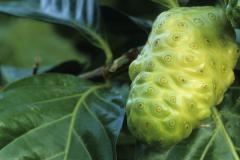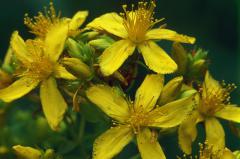On January 24, 2018, CBS News released a three-minute video segment titled “Why herbal supplements taken with
prescription drugs may be risky,” based on a recent study that analyzed reports
of serious herb-drug interactions (HDIs) from published clinical trials.1In the “CBS This Morning” segment, medical correspondent Tara Narula,
MD, an assistant professor of cardiovascular medicine at Hofstra University North Shore-Long Island Jewish Health System
(NSLIJ) School of Medicine in New York, said that “herbal supplements are
pharmacologically active” and that they “could interact with medication.”1
Cranberry (Vaccinium macrocarpon, Ericaceae), ginkgo (Ginkgo
biloba, Ginkgoaceae), ginseng (Panax spp., Araliaceae), green tea (Camellia
sinensis,  Theaceae), and St. John’s wort (Hypericum
perforatum, Hypericaceae) were singled out as botanical ingredients
that can cause HDIs; however, the report failed to mention any specifics about
the type of conventional drugs with which these botanical ingredients might
interact. Theaceae), and St. John’s wort (Hypericum
perforatum, Hypericaceae) were singled out as botanical ingredients
that can cause HDIs; however, the report failed to mention any specifics about
the type of conventional drugs with which these botanical ingredients might
interact.
While CBS News did not cite the source of its information, other recent media
coverage on the topic, such as online reports from Science Daily2 and
TIME,3
refers to a study by researchers from the South African Medical Research
Council and the University of Stellenbosch published in the British
Journal of Clinical Pharmacology (BJCP).4
The study assessed 49 case reports and two observational studies out of 5,113 retrieved articles that were published between 2001 and 2017. Using
various assessment methods, the reported adverse drug reactions were classified
according to the probability that HDIs were at the origin. Based on their analysis,
the authors ranked the likelihood of HDIs causing the reactions as “highly probable” (8%), “probable” (51%), “possible”
(37%), and “doubtful” (4%).
The four “highly probable” case reports include alleged interactions
between noni (Morinda citrifolia, Rubiaceae) juice and phenytoin (an antiseizure
drug), cranberry juice and warfarin (a  blood-thinning drug), goji (Lycium
barbarum, Solanaceae) berry and warfarin, and St. John’s wort and
cyclosporine (an immunosuppressant drug). blood-thinning drug), goji (Lycium
barbarum, Solanaceae) berry and warfarin, and St. John’s wort and
cyclosporine (an immunosuppressant drug).
Ginkgo, ginseng, St John’s wort, and goji were each involved in three
case studies. Patients were being treated for heart disease, cancer, kidney
transplants, or central nervous system diseases, such as depression, schizophrenia,
anxiety disorders, and seizures. These patients were taking conventional
pharmaceutical drugs (e.g., warfarin, statins, chemotherapeutics,
antidepressants, or immunosuppressants) and a majority had multiple
conventional drugs prescribed.
The potential for clinically relevant HDIs is a significant concern for
many health care practitioners. Since sufficiently rigorous clinical studies on
the issue are lacking, in vitro research, a small number of case reports, and
even hypothetical and theoretical concerns often are used as data sources to identify
potential HDIs. The data from in vitro studies, particular those on isolated
liver enzymes, often have shown to be of little clinical relevance,5-7
and relying on such data may deprive a patient of using a beneficial herbal
supplement.
Unfortunately, most media reports on the BJCP paper do not identify the
reported interactions that are clinically relevant, but rather suggest that
herbal ingredients, in general, may put one’s well-being at risk when taken
with conventional drugs. As such, the herb-drug information reported in the
mainstream media based on this new paper is inadequate.
Bill Gurley, PhD, professor of pharmaceutical sciences at the University
of Arkansas for Medical Sciences, who has researched clinically relevant HDIs
for more than 20 years, commented: “In my opinion, this current media  reporting
is much ado about nothing, especially given the confounding variables in most
of the case reports. Case reports are fraught with unknowns, and supplement
dosage forms are also oftentimes fraught with unknowns.” reporting
is much ado about nothing, especially given the confounding variables in most
of the case reports. Case reports are fraught with unknowns, and supplement
dosage forms are also oftentimes fraught with unknowns.”
Gurley continued: “As far as the [BJCP] paper goes, it’s really nothing we
didn’t already know, except that several of the case reports they cited for
botanicals like goji, ginseng, and ginkgo are simply too speculative to give
them much clinical merit. There are some botanicals that do pose a significant
risk for drug interactions, but goji, ginseng, and ginkgo are not among them. At
least, they do not pose a risk when taken responsibly.”
The following eight herbs and common household foods, depending on
levels of intake, are known to produce potential clinically relevant herb-drug
interactions of which both consumers and health care practitioners should be
aware: black pepper (Piper nigrum, Piperaceae), goldenseal (Hydrastis
canadensis, Ranunculaceae) root, grapefruit (Citrus
paradisi, Rutaceae), green tea, licorice (Glycyrrhiza
spp., Fabaceae), milk thistle (Silybum marianum, Asteraceae),
schisandra (Schisandra chinensis, Schisandraceae), and St. John’s wort.
Consumers who are using pharmaceutical drugs and are considering taking
any of these herbs and foods should discuss possible interactions with their
pharmacist, physician, or other qualified health care professional.
—Stefan
Gafner, PhD
Image credits (top to bottom):
CBS News logo Noni (Morinda citrifolia) ©2018 Steven Foster St. John's wort (Hypericum perforatum) ©2018 Steven Foster
References
- Why herbal supplements taken with prescription drugs may be
risky. CBS News. January 24, 2018. Available at: www.cbsnews.com/video/why-herbal-supplements-taken-with-prescription-drugs-may-be-risky/. Accessed February 14, 2018.
- Herbal products may compromise prescription drugs and cause
serious side effects. ScienceDaily. January 24, 2018.
Available at: www.sciencedaily.com/releases/2018/01/180124085359.htm. Accessed February 14, 2018.
- Macmillan A. Herbal supplements may be dangerous when you
take certain prescription drugs. TIME. January 24, 2018. Available at: http://time.com/5116664/are-herbal-supplements-safe. Accessed February 14, 2018.
- Awortwe C, Makiwane M, Reuter H, Muller C, Louw J,
Rosenkranz B. Critical evaluation of causality assessment of herb-drug interactions
in patients. British Journal of Clinical Pharmacology. Published online
January 24, 2018. Available at: http://onlinelibrary.wiley.com/doi/10.1111/bcp.13490/full. Accessed February 14, 2018.
- Gurley BJ, Fifer EK, Gardner Z. Pharmacokinetic herb-drug
interactions (part 2): Drug interactions involving popular botanical dietary
supplements and their clinical relevance. Planta Med. 2012;78(13):1490-1514.
- Sprouse AA, van Breemen RB. Pharmacokinetic interactions
between drugs and botanical dietary supplements. Drug Metab Dispos. 2016;44(2):162-171.
- Gurley BJ. Pharmacokinetic herb-drug interactions (part 1): Origins,
mechanisms, and the impact of botanical dietary supplements. Planta
Med. 2012;78(13):1478-1489.
|